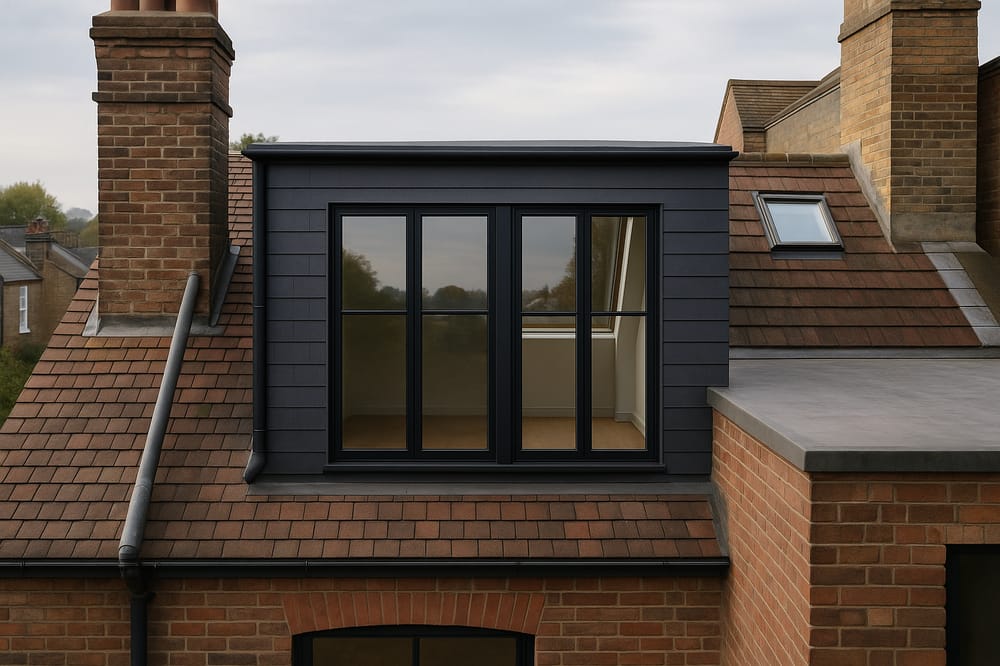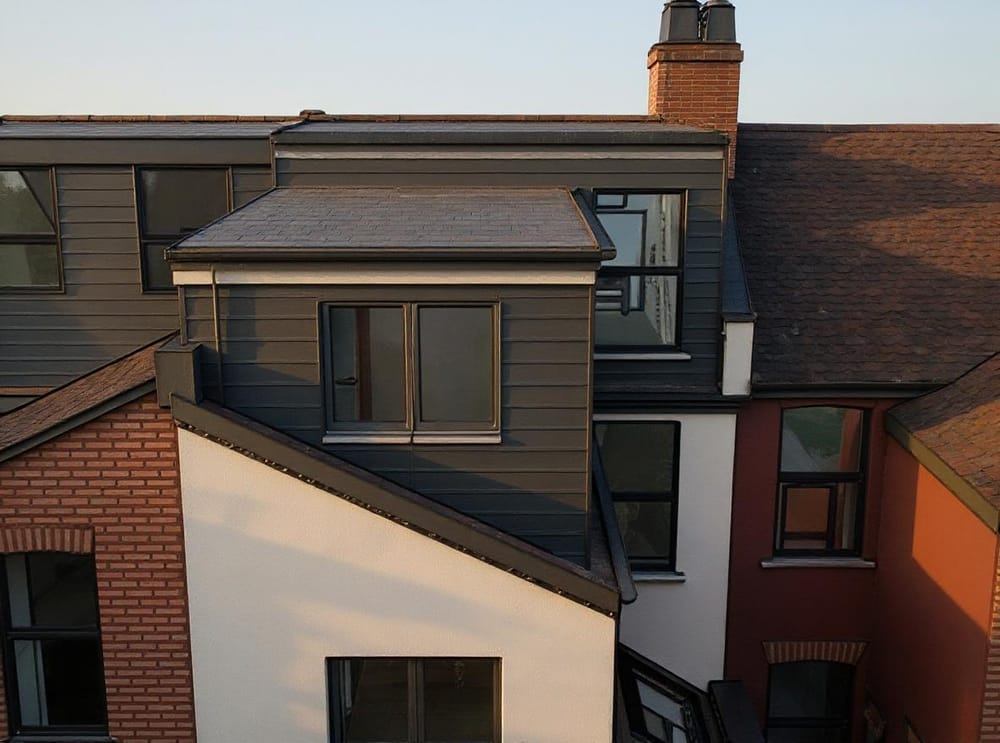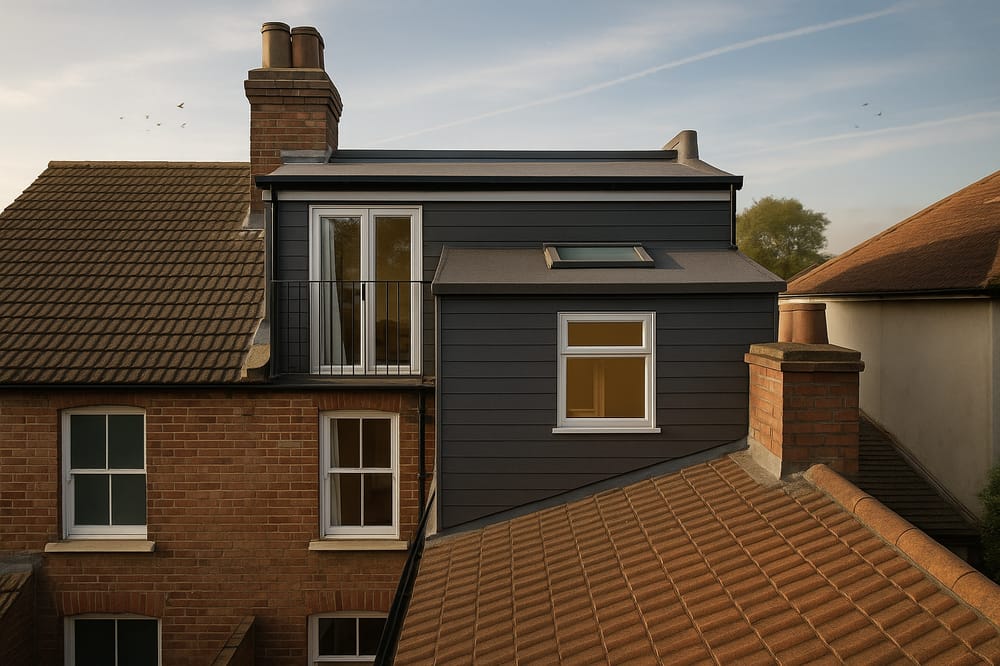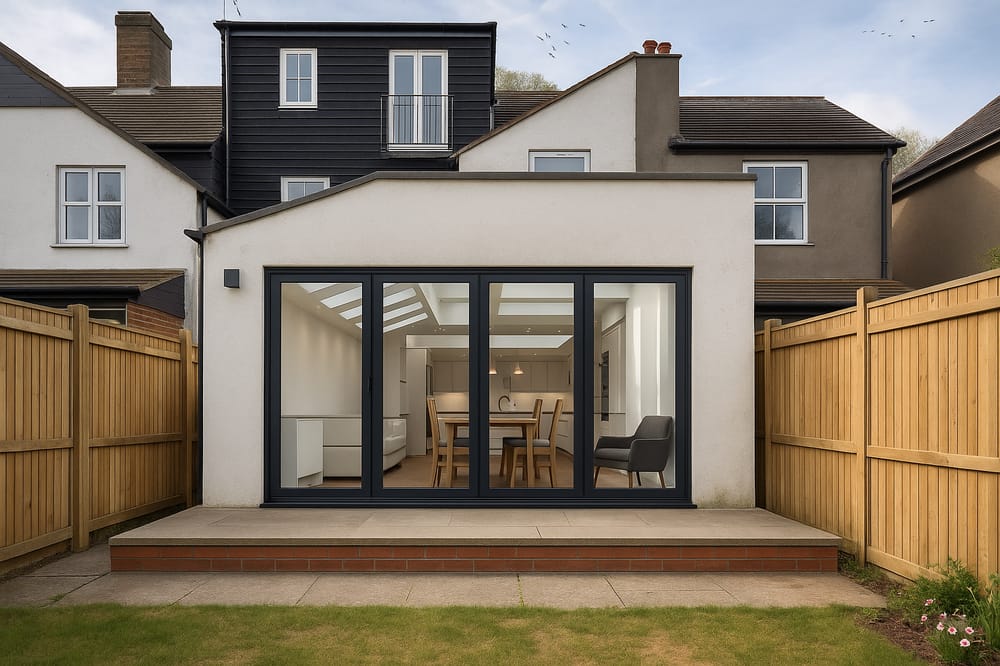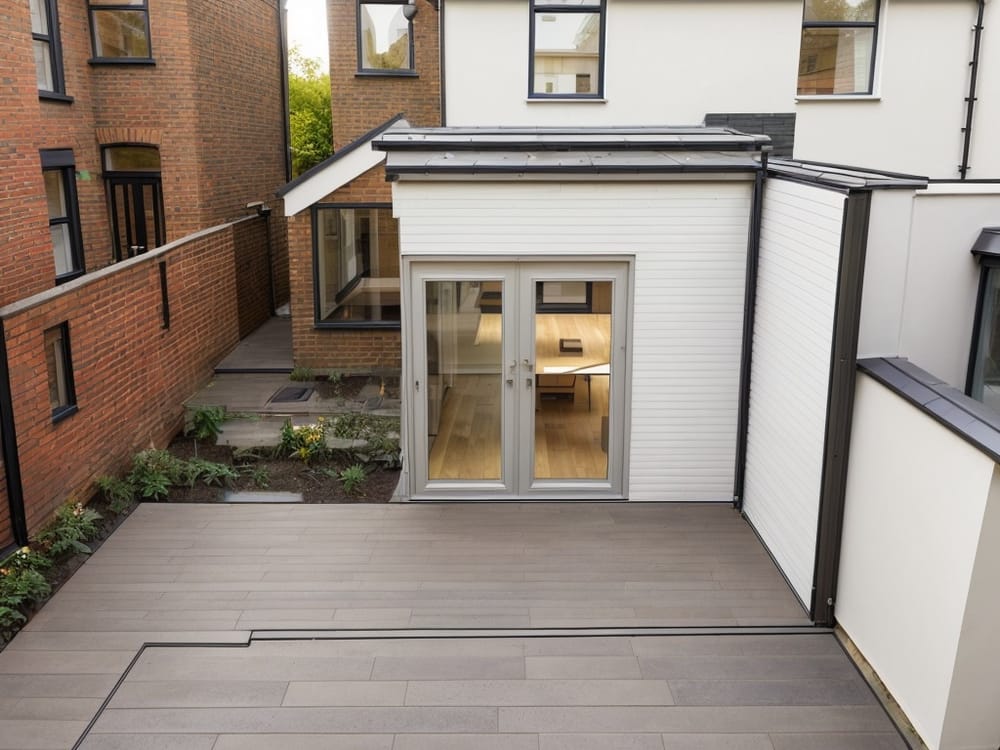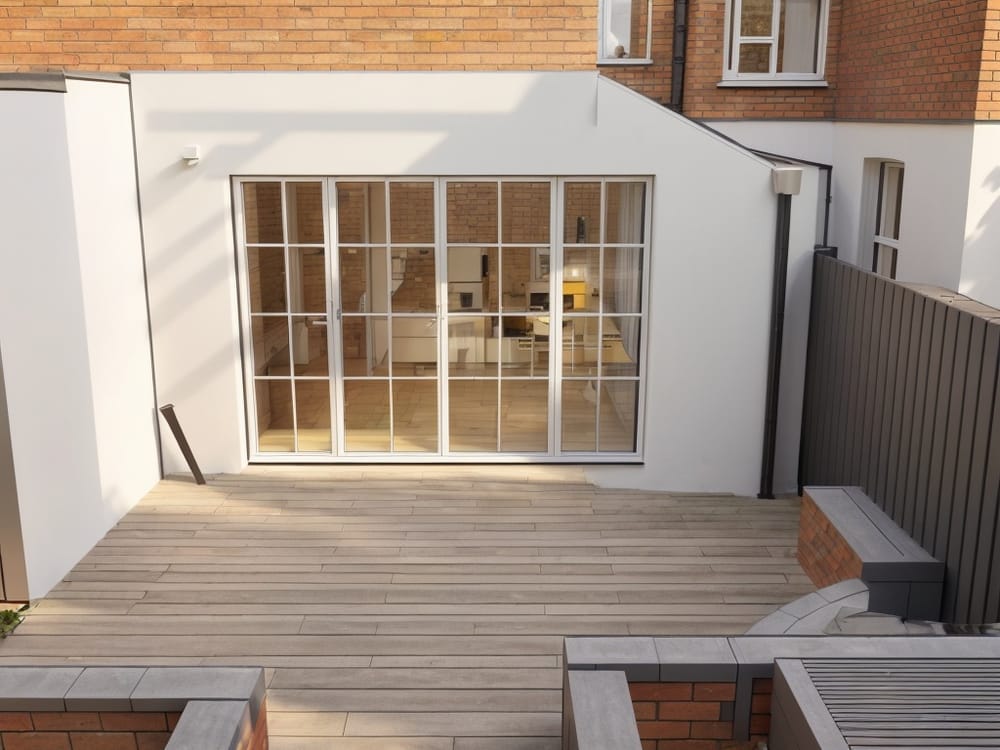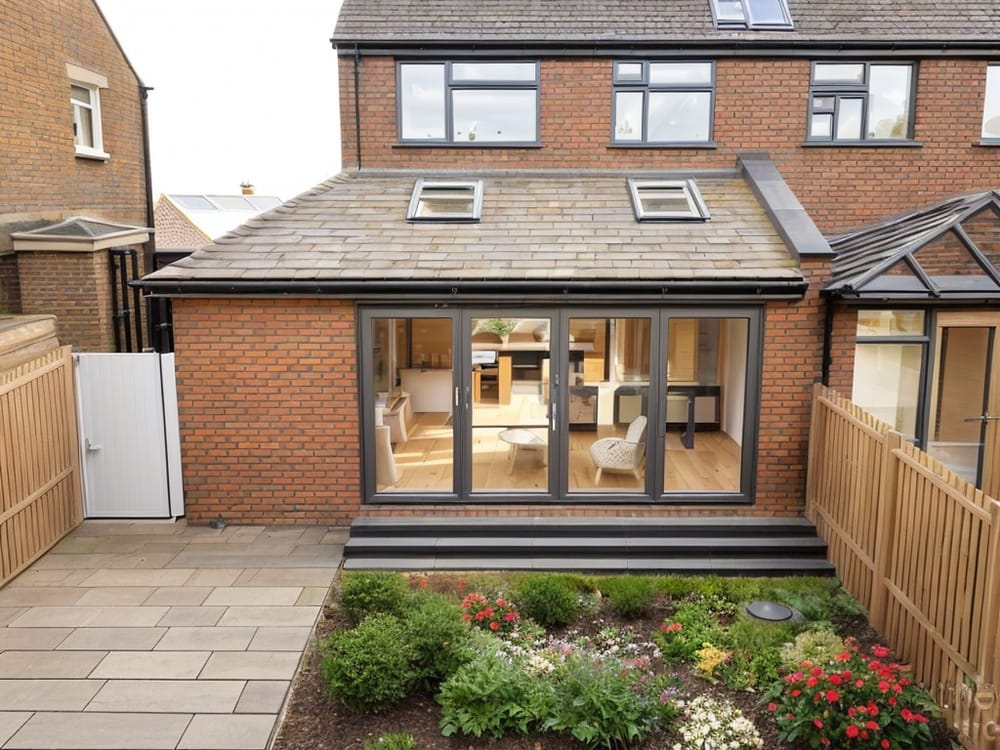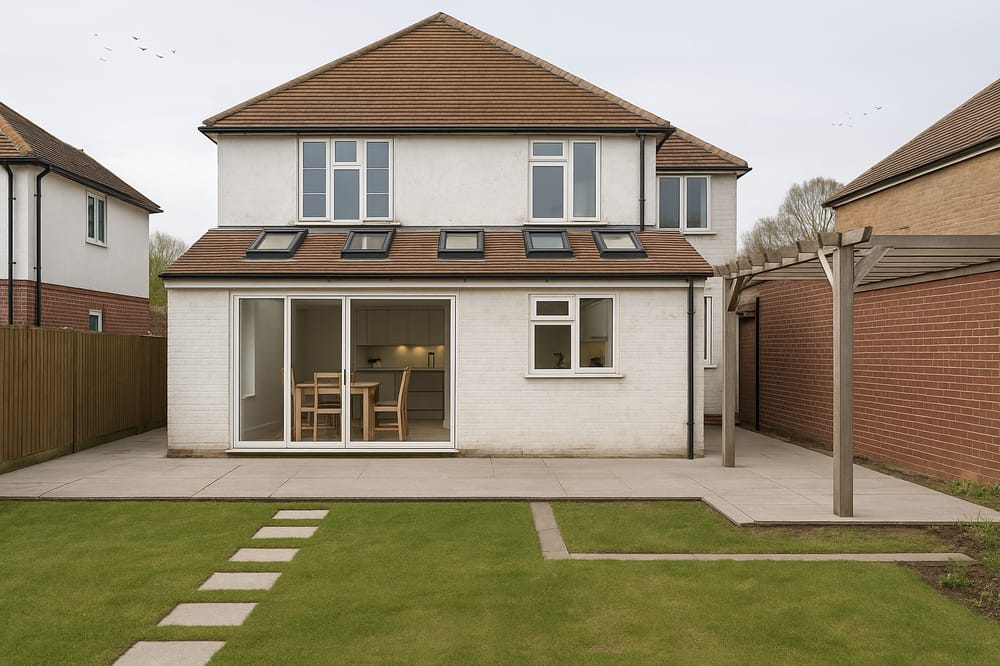Adding a new extension above your garage isn’t the most common project in the UK, so if you’re tackling this project yourself, it can feel a little difficult to work out what steps are ahead of you - especially when it comes to the construction stage.
Luckily, as the UK’s leading home extension platform, our construction specialists are always on hand to guide you through the process. We sat down with our in-house experts to bring you all the garage extension answers you need.
Looking for tailored home advice? Book a free consultation here for guidance on everything from planning, finance to contractors.
Is extending over your garage possible?
When trying to puzzle out your extension possibilities, there are a lot of technical details that will need to come into play. The main offenders are…
- The foundations
- The walls currently in place
What won’t play too big a role in the construction of your garage extension is the size of your existing garage (single, double, doesn’t really matter), nor will it be too much of an issue if your garage is detached or not.
The importance of your foundation's depths
Before any building work takes place, your existing foundations will need to be inspected by a structural engineer, who will be able to assess whether or not they will be able to support the new additional storey.
Generally speaking, your foundations should be at least 600mm wide and 1000mm deep. However, this depth will need to be confirmed on-site and checked against your ground conditions, alongside other site constraints.
Potential site constraints…
- Nearby trees
- Existing structures
- Nearby drainage
- Proximity to neighbours
Checking your existing garage walls
Again, you’ll need to work with a structural engineer to assess the current integrity of your existing garage walls.
If the external walls of the new first-floor extension are built right above the existing garage walls, it’ll need to be established whether or not they can accommodate any extra weight.
Your engineer will also need to look at the width of your existing walls. If the existing garage is made of single leaf walls, you will not be able to build new cavity walls - though these are standard nowadays for new external walls - on top of them. You may need to add an internal loadbearing inner leaf to the existing single leaf garage wall OR consider different structural support for the new walls of the first floor. All need to be addressed case by case to identify the best solution.
What to do if my foundations are not solid enough?
If you had your heart set on an extension over your garage but your foundations are lacking, there are some options still out there.
Upgrade your current garage’s foundations
If you want to upgrade your existing garage to handle the load of an extension, then you may need to underpin your existing foundations.
The most common way this is undertaken is through mass concrete underpinning. This involves excavating a segment below the existing foundations to a depth where suitable bearing capacity exists.
The excavation is then filled with concrete, allowed to partially set before the next pin is worked on. A builder will then transfer the structurally load onto the new pin.
Demolishing your current garage and rebuilding
A less technical solution could also be to just demolish the existing garage, giving you space to construct a better two-storey structure.
However, if demolition wasn’t proposed in your planning application, then you’ll need to go back to the drawing board and make a new submission.
New lightweight first floor
It’s not a commonly used solution but another idea might be to create an extension with less structural load than traditional projects.
Instead of a standard masonry build, you may consider a timber frame for the new external walls. Although this adds less weight on top of the existing walls, structural consideration will be needed on how your timber frame will be supported, along with other considerations, such as thermal upgrading.
Side extension
If an extension above your garage doesn’t seem feasible or is out of your budget, another option to consider is adding a side extension. This could help square off your garage against the main building, or simply be added to increase the square footage and give space for conversion.
Side extensions do come under your permitted development rights, however, if your garage isn’t part of the original house, then your allowance of land may have already been used up. Therefore, it’s best to check with a planning expert in regards to what might be possible, both from a planning and design perspective.
Learn more about single-storey side extensions here.
How much does it cost?
It’s important to note that prices will vary widely depending on…
- Site and existing structural conditions
- Size of your extension
- Location in the UK
- Design complexity
- Quality of both your contractors and materials
Therefore, the only way to get a true understanding of costs is to have a consultation with a qualified expert.
However, as a very rough estimate, we would say you need to have a budget between £45,000 - £80,000.
If you’d like to understand more about garage extensions, don’t forget our team is always here to help. We’re the UK’s leading home extension platform, providing services that include…
- Surveying
- Design
- Planning support
- Building regulations
- Finance
- Introductions to local contractors
Get a quick quote for our services or talk to our team by booking a free consultation.


